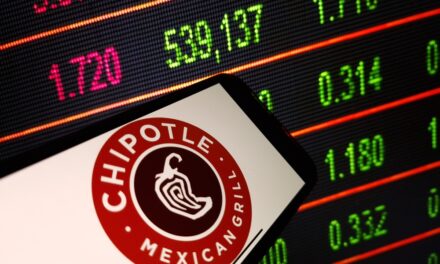Imagine it’s January 20, 2025, and you’re watching on television as America’s next president is sworn into office on Inauguration Day…
Except it’s not Joe Biden. And it’s not Donald Trump.
Instead, No. 47 is a third-party candidate.
A so-called “dark horse” candidate who emerged from the fringes during the campaign’s eleventh hour.
Instead of hiding behind a wall of advisors and experts, this eccentric “dark horse” spoke frankly about his intentions. He railed against our massive federal debt, our overreaching government and our crooked Federal Reserve.
He promised to put a stop to all that — and even brought a chainsaw to his political rallies, a vivid image of his eagerness to slash spending.
He even appeared on talk shows alongside a piñata shaped like the Federal Reserve building, then proceeded to beat it to ribbons with a baseball bat.
After all that, he did something entirely unheard of in politics.
He actually followed through on all those campaign promises.
In other words — he’s what most Americans would call “the perfect president.”
But in Argentina, they just call him Javier Milei…
Argentina’s New Libertarian Frontier
Longtime readers of Money & Markets Daily will know that we’ve been following Milei’s rise to power with great interest.
Milei is a radical libertarian — a self-proclaimed anarcho-capitalist.
Essentially, he believes that people are most prosperous when the government leaves them alone.
This puts Milei in direct conflict with the political establishment of Argentina, where liberal programs and inflationary spending have run amok, alienating foreign investors and bringing the economy to the verge of collapse.
So with their country on the brink, Argentinians voted to bring in an outsider.
Following Milei’s successful campaign for president (which did indeed involve both chainsaws and piñatas), he officially took office on December 10, 2023, with inflation topping 211%.
Milei took swift action as he’d promised.
On his first day, he immediately slashed the number of government ministries from 18 to 9. Ten days later, he signed what’s called the “Mega-decree” (officially Decree 70/2023), which would enact sweeping deregulation across the Argentinian economy.
Not surprisingly, Milei was met with fierce resistance from his political opposition.
They accused him of being reckless, asserting that his economic “shock therapy” would do irreparable damage to the already fragile economy.
However, with hyperinflation as the only alternative, Milei pointed out that the government no longer had any choice. As he plainly explained to the media from the steps of Congress: “There is no money.”
Since Milei comes from a third party that only controls 15% of Argentina’s Congress, he’s had a harsh uphill battle — resorting to executive powers to slash public spending wherever he can.
But the early results of his presidency have been promising, including the country’s first week without inflation in over 30 years.
Now, a recent breakthrough shows that Milei’s movement is gaining momentum. And that’s great news for you…
The Next Western Superpower
This past Friday, Argentina’s lower house finally passed Milei’s “Mega-decree” into law.
This sweeping new law will slash through the country’s protectionist trade regulations, throwing open the gates to foreign investors for the first time in over a generation.
And a steady flow of incoming cash will do more than just revitalize the country’s ailing industries. It will also help unlock its massive untapped natural wealth.
The Vaca Muerta shale formation in Argentina’s Neuquen Basin is the world’s second-largest shale gas reserve and the fourth-largest reserve of shale oil.
In total, there are more than 308 trillion cubic feet of natural gas locked away more than 3,000 feet beneath the surface of the country’s Western desert.
These reserves were a total secret to the world until 2010 when a rogue exploration team from a domestic oil company started testing the area and hit the mother lode.
At the time, Argentina’s domestic oil industry lacked the capacity, the technology and the budget to begin tapping the country’s massive shale reserves. But we do here in America.
ExxonMobil already has limited assets in the area, and Argentinian oil companies have also dealt with Chevron in the past.
But as Milei’s new policies continue to gain traction, as Argentina becomes friendlier to foreign investment, you can expect increased interest in developing the country’s colossal shale assets.
It will take years, and it will cost billions of dollars, but Argentina could soon become one of the world’s largest exporters of shale oil and gas — shifting the balance of power in the global energy industry.
To good profits,

Adam O’Dell
Chief Investment Strategist, Money & Markets Daily




